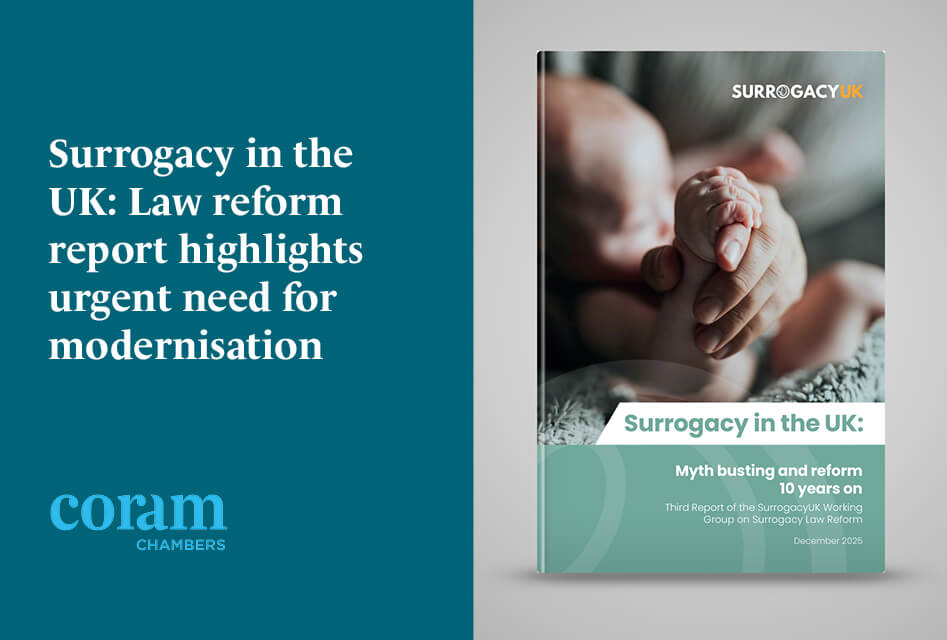
Coram Chambers barristers Greg Williams, leading Sam Watts, and instructed by Dawson Cornwell Solicitors, have succeeded in a significant appeal before the Court of Appeal in the case of Manisha Ramana v Christnan Kist-Ramana [2025] EWCA Civ 1022.
The judgment, now published, offers essential guidance on the determination of domicile in divorce proceedings and the proper allocation of the burden of proof.
The case arose after the High Court initially dismissed Mrs Ramana’s divorce petition on jurisdictional grounds. Williams J, the trial judge, found that Manisha was not domiciled in England and Wales at the time of her application in October 2022. His Lordship had concluded that Mrs Ramana had not regained her domicile of choice in England in the short period following her return after a period abroad.
On appeal, Greg and Sam successfully argued that the trial judge failed to address a crucial question: namely, whether Mrs Ramana had, in fact, lost her English domicile of choice during her period of time spent abroad, which in her case was supposed to have been only temporary.
The Court of Appeal agreed, holding that the original judgment overlooked a full evaluation of Mrs Ramana’s intentions, and had misapplied the law on the burden of proof regarding loss of domicile.
The Court of Appeal made several key observations:
- Once a domicile of choice is acquired, it does not automatically end upon leaving the country. There must be clear and convincing evidence of an intention to abandon that domicile.
- Any party asserting that a domicile of choice has been lost bears the burden of proof. In this case, it was for Christnan Kist-Ramana to demonstrate that Manisha had relinquished her English domicile of choice.
- The original judge erred by placing the burden entirely on Manisha.
- Relevant events after 2019 – including Manisha’s return to England and her intentions regarding her future – should have been considered as part of a holistic assessment.
Considering these errors, the Court of Appeal set aside the original order and ordered a rehearing. Both the question of domicile and the husband’s application for a stay under the Domicile and Matrimonial Proceedings Act 1973 will be reconsidered.
This decision will resonate through family law, particularly in international divorce cases where questions of domicile and jurisdiction are contested. It also has potential wider implications, including tax (death duty) cases, and applications for parental orders under section 54 of the Human Fertilisation and Embryology Act 2008.
The judgment highlights the importance of a careful, evidence-based approach to domicile and reaffirms the correct legal principles for practitioners and judges alike.
You can read the full judgment here or in the PDF below.


